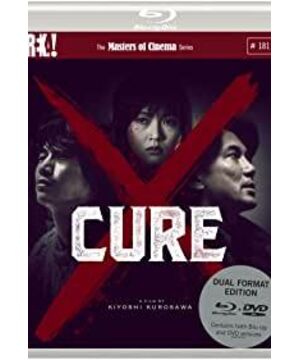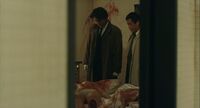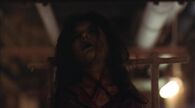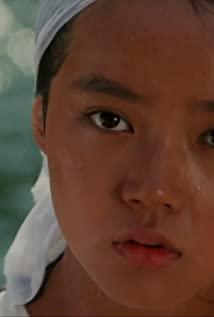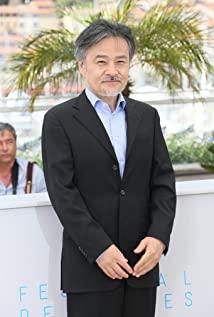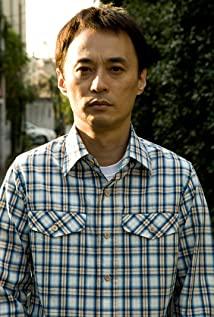I am in the film industry, not because I have a special story to tell. Fundamentally speaking, I am interested in the film itself.
-Kurosawa Kiyoshi
1. Ordinary Demons (Ordinary Demons)
There are many reasons for the birth of this movie. A long time ago, more than 10 years ago, I was watching news reports on TV that a murderer was arrested for a crime. In Japan, we have a lot of such news reports, and it may be the same in the United States. The murderer’s neighbors were also interviewed and broadcast on TV. "He is just an ordinary person, he is a good person, why should he commit such a crime?" They all said this. News commentators said that under the disguise of ordinary people, a dangerous murderer has been hiding in this neighborhood. That's how he explained it.
When I saw it on TV, I thought it might not be the case. Perhaps he was not a dangerous murderer pretending to be a normal person at first. On the contrary, he was a good and normal person at first, but something triggered him, and then he became a murderer. I think this may be a more accurate explanation. Therefore, the skepticism of the report is an important inspiration for the filming of this film.
2. The Self and the Other (self and others)
The word identity has become part of Japanese. But its true definition...I don't understand its true meaning. Does identity really exist? Ideally, a person should have an identity, but does anyone really have an established identity? I have always been skeptical about this, perhaps because I am Japanese. Can a person say that he is the only existence and cannot change this in any way? This is what I suspect.
For example, the protagonist in "X Shengzhi" is a police detective, but is he the same person at work and at home? When he comes home from get off work and is a good husband to his wife, is he still the same person at work? Physically, he is of course, so is the soul, but I don't think he is exactly the same person.
I think this is normal as a person. When something happens to us, we will change little by little. We will also change depending on who we are with. For example, unconsciously, as time goes by, you tomorrow will become a slightly different person than today. At every point in time, you believe that that person is you and who you are. However, when you compare who this person is at different points in time, there will be inconsistencies. You will see many different aspects that you did not realize, but you think they are all one person. We all live like this, and I think this is society. This is why the people we see in "X Shengzhi", including the protagonist, will show different personalities as the situation changes. They are not like the characters we usually see in movies. They don't have a clear identity, and they don't have an easy-to-identify personality. But in my opinion, as a person, this is more natural.
Well, first of all, this is not limited to "X Sanji", there are often a couple in my movies. That's because...people do not live alone in this world. In our lives, we build relationships with others. As the most basic and simple unit to show this relationship with others, and as the easiest unit to understand, I often use a couple in movies.
A couple lives together, they stay with each other as much as possible, and they try to understand each other. They are in love, but it is impossible to fully understand each other. One day, although they believe that they share the same space and time, something may happen to disrupt this belief. One thinks that the other is a completely unknown person, a stranger. I think such an idea will definitely happen. But in the next moment, this situation may change, and you will deny all the ideas just now. I think we live with this constantly changing mindset.
Husband and wife represent the simplest form of this relationship. Because they love each other, this tension exists. So in "X Sanji", I also tried to express this with a very typical consciousness.
3. Outside the Frame (outside the viewfinder)
Regarding space, the way I deal with space in the movie applies to this movie as well as to my other movies. In the movie, we frame the space in the rectangular viewfinder, and the audience can only see the space we photographed. But of course, the space outside this viewfinder also exists, which is obvious. Therefore, when I am photographing the space inside the viewfinder, I always try to convey a feeling that the space continues outside the viewfinder. In other words, what is visible in the picture is certain, but the invisible space outside the picture should have a certain influence on the visible part of the picture. It may be very inconspicuous, or it may be very strong. It can vary, but the invisible part of the space outside the viewfinder will definitely affect the visible part in some way. I always keep this in mind when editing space shots to create scenes.
The acquaintance with Maruo Chiyuki was purely accidental. The first time I worked with him was not a film project, but what we call a videotape film in Japan. The distribution of video tapes is very similar to movies, but they are not shown in movie theaters, they are only distributed as video tapes. They are very low budget gangster movies. I met Tomoyuki Maruo through a producer of a video project. At the time, I thought he was excellent for the following reasons. In Japan, when you are making a movie, considering the movie budget, it is difficult to set up a scene. So we have to use existing buildings and make small changes to them. We must be creative and make them close to what we imagined. This is where the art director's skills are.
When shooting in Tokyo, it is very difficult to find a good shooting location. Everything looks very rough, everything looks a little new. If you want to shoot a new building, just shoot it directly. But slightly dilapidated buildings and old buildings that everyone has forgotten are what I want for these projects. Maruo Chiyuki also just likes that kind of building, a building that may be demolished, unless it is now photographed and reduced to a ruined building. And Tomoyuki Maruo knew many of these buildings, and he told me where they were near Tokyo. Because I also like that kind of architecture, and being able to shoot in this kind of place is very interesting for both of us.
We made a lot of gangster movies together. Later, after we made eight such movies together, the opportunity came and we filmed "X Sanji" with Maruo Chiyuki. And we extend our preference for old buildings to "X Sanji". In old buildings that may eventually be demolished or left in ruins, he will make some small changes, such as placing chairs or beds. And through such a simple transformation, a room will become a hospital ward or someone's bedroom. Maruo Tomoyuki's art direction skills have always impressed me. Although we are shooting a fictional story, he will still come up with some ideas for the design of the scene, as if he was making a documentary about this place. I have always appreciated what he has done in this regard.
Four, Process (process)
Coincidentally, the Yakusho Koji is the same age, and he and I are the same age. When chatting with Mr. Yakusho, I really think we are of the same generation. In other words, our generation is in Japan... the generation before us is very... Very clear idea. At least, they had clear ideas when they were young. The generation younger than me is that they are not interested in political things, but they have very clear ideas about their hobbies and preferences, they are very protective of what they like, and they have faith in what they like.
The generation to which Mr. Yakusho and I belong is sandwiched between these two generations. Our social status, political stand, and opinions are vague, not very clear, and our hobbies and preferences are also vague. I really feel that everything in our generation is uncertain and unclear. So when I chat with Mr. Yakusho, we often have similar views. This is why, when I have a story in my mind, if the protagonist of the story is a bit like me, or if he is a strong reflection of myself, I tend to ask Mr. Yakusho to play this role. Such a character's values are very vague, he is an ordinary person. He tried to live quietly without attracting the attention of others. Such a protagonist is a portrayal of myself. For this kind of role, the first thing I usually think of is Mr. Yakusho. He understands that this kind of person is like this. They are ambiguous and accept everything resignedly. Although they are hesitant, they can live according to their environment. Mr. Yakusho understands that people are basically like this. So, when I have a protagonist with these characteristics, I don't need to explain to Mr. Yakusho. He understands such a role, so I tend to choose him.
In fact, I decided on the name "X Sanji" after the film was finished, and it took me a long time to decide. This was not the name of the movie at the beginning. I thought of what happened to the protagonist played by Mr. Yakusho in the movie. He had a very painful experience. But when you think about the final meaning of that experience to him, he finds true peace. But in exchange for this kind of peace, he may eventually become a criminal, he may become a marginal person abandoned by society, he may cause trouble to the society, but in return may be peace of mind. So he found solace through this tragic experience. If we look at it this way, then we can say that he was "holy governed".
I think it's really... I think it's because of my age or my generation. The time I found myself obsessed with movies the most was before I became interested in making movies. At that time I watched all the movies I could see, it was about the first half of the 70s, my high school and college years.
Around the mid-1970s, American entertainment films were certainly the most popular movies in Japan at the time. Back then, American entertainment movies were... it was after the end of what we call the classic Hollywood period in Japan and before Steven Spielberg made "Jaws" (1975), during this period. To a certain extent, I don’t know much about American movies, but that may be a transitional period for American movies, and that period happened to be when I watched the most movies. Even if I see the same movies now, I think many movies from that period are very exciting. To name a few famous directors of that period, Sam Pekinpa, Robert Aldridge, Richard Fletcher and Don Sigel. But the film careers of these directors did not start at that time. In fact, they started making films as early as the 1950s. They are all veteran filmmakers in shooting certain types of movies.
After the end of the classic Hollywood period and before Spielberg's arrival, it was a period of confusion. Hollywood didn't know what kind of movies should be made. Various themes and stories were explored. Those movies were made with very unusual and sophisticated film narrative techniques in the 1950s or before. I think this is the situation at that time, so the themes and characters of these movies are very complicated, and they cannot be described in one word. The stories told by these films are completely different from those in general genres. But in terms of style, there are gorgeous westerns or brilliant police films and so on. So in the American movies of that period, there was such a mixture of chaos and complexity.
Because I was very young when I saw them, they had a great influence on me. Even after seeing them now, I still firmly believe that many great American movies were shot during that period. It is not easy to imitate them, but I want to make a movie that is chaotic and complicated. I think this is because of the influence of those old movies.
[Note: The original English word for "Classic Hollywood Period" in the text is "New American Cinema". Because it does not have a corresponding Chinese term, it is described in combination with the context and timetable, and it contradicts the definition of "New Hollywood Film" (1967-1976). Therefore, the translation of "Classic Hollywood Period" is applied. If there is a more accurate statement, please point out. 】
(Interview time: 2003 Translation: feixinping proofreading: ChatBigMountain)
View more about Cure reviews


